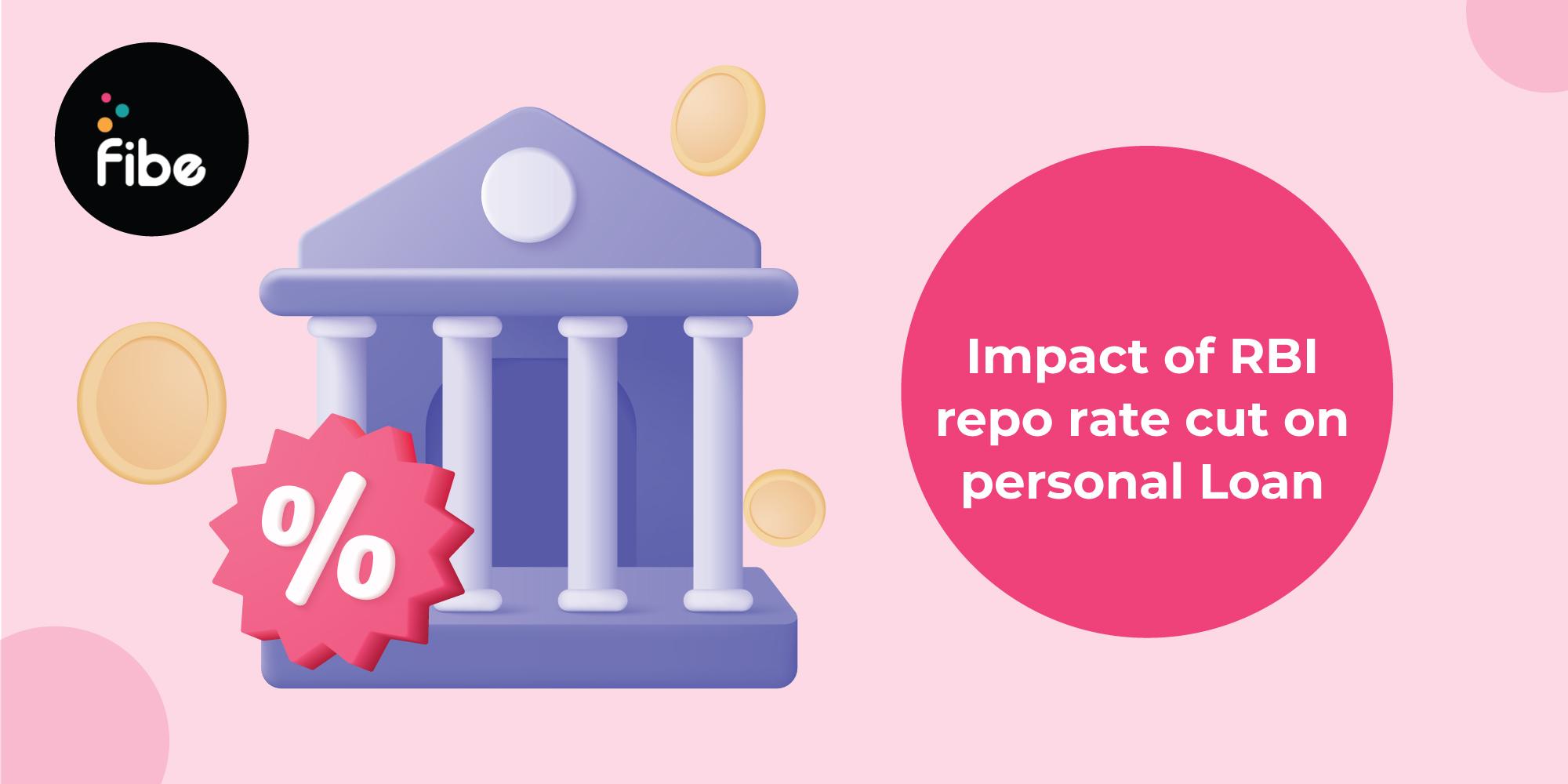- Home
- Blogs
- Personal Loan
- How Does Repo Rate Affects Personal Loan
How Does Repo Rate Affects Interest Rates of Personal Loans?
- Updated on: 19 Sep 2024

Do you know how the repo rate increase affects your personal finances? When you apply for a loan, lenders levy an interest rate. However, this isn’t a random number but a carefully calculated rate based on the prevailing repo rate and the institution’s policy.
Here are some essential points that you need to know:
The repo rate or ‘Repurchase Rate’ means the interest rate at which the Reserve Bank of India gives money to NBFCs and Banks in India. So, the cardinal rule is that the higher the repo rate, the higher the interest rate. Knowing this beforehand helps you better understand the repo rate effect on a personal loan and other forms of credit.
Thinking how does repo rate affects the interest rates of your personal loans? Generally, the RBI increases the repo rate to combat high inflation. If the RBI wants to increase the circulation of money in the economy, it lowers the repo rate. On the contrary, if the RBI wants to reduce borrowing by banks, it increases the rate to minimise the liquidity in the market.
So, an increase in the repo rate affects a personal loan, as well as business, home and other loan interest rates. Since interest rates have a direct effect on your EMI amount, an increase in the repo rate will also increase your EMI.
On the other hand, lenders borrow funds at a lower interest when the RBI reduces the repo rate. In such cases, the interest rate also lowers as they offer loans at a lower rate.
Simply put, a cut in the repo rate decreases your loan EMIs while an appreciation in the repo rate will increase your loan EMIs.
In addition to the repo rate effect on a personal loan, here are some other factors that affect your interest rates and EMIs.
Lenders charge a higher interest rate if you have a low credit score to mitigate the risk of providing the loan. If you apply with a good credit score, you can get credit on favourable terms, thereby minimising your borrowing costs.
A higher loan amount also increases the risk for lenders. To enjoy lower EMIs and affordable interest rates, borrow only the amount you need.
Interest rates and tenure have a reciprocal relationship; as one increases, the other decreases. Opting for a longer tenure will decrease your EMI, but remember that your interest payment will increase over the tenure.
Lenders may hesitate to provide your loan at a lower interest rate if you already have an ongoing loan. However, if you have a good score, lenders can rest assured of your repayment capability and may consider your loan application on favourable terms.
Showing a higher income is one way to opt for a lower interest rate on your personal loan. Generally, lenders prefer employed individuals with steady work experience.
When you apply for a loan with an existing or past borrower, they have your record of repayment history. Based on that, you can get a personal loan at a lower interest rate, decreasing your loan EMIs.
In conclusion, the repo rate changes based on the economic situation and RBI monetary policies. Hence, apply for a loan when the repo rate is lower as interest rates will be more affordable.
One such budget-friendly credit option you can consider is the Fibe Instant Cash Loan. With this type of credit, you can meet all your urgent financial requirements at affordable interest rates starting from 2% per month.
It also has a speedy approval process and flexible tenure option with minimum documentation requirements, helping you tackle your financial needs hassle free. Download the Personal Loan App or go to our website to get up to ₹5 lakhs in a few clicks.
Yes! This rate set by the RBI affects the interest rate offered by the lender. This way, it has a direct effect on your personal loan as well as other types of credit.
When the RBI repo rate for personal loans increases, the cost of borrowing subsequently increases. Thus, if you have a floating interest rate loan, your EMI will increase with the hike in the repo rate.
An increased repo rate has many pros and cons. For example, the interest rate on loans may increase, but individuals with FDs and savings can get better returns.